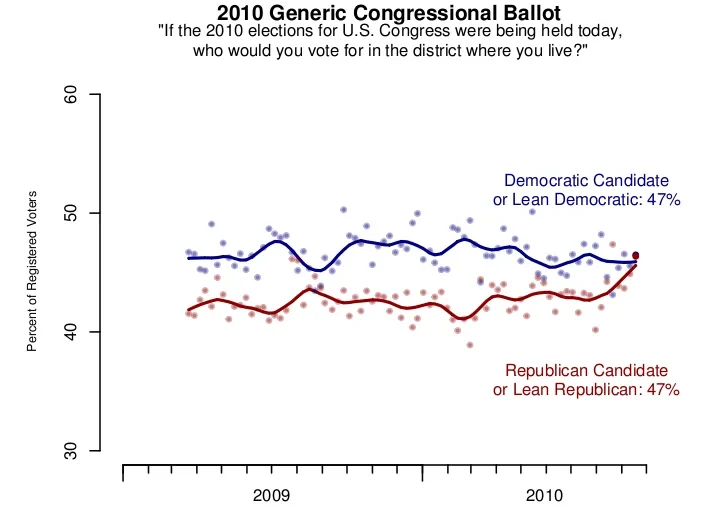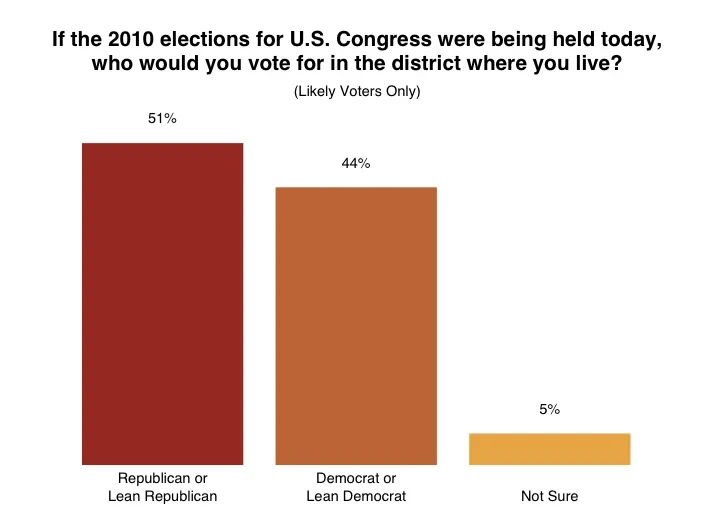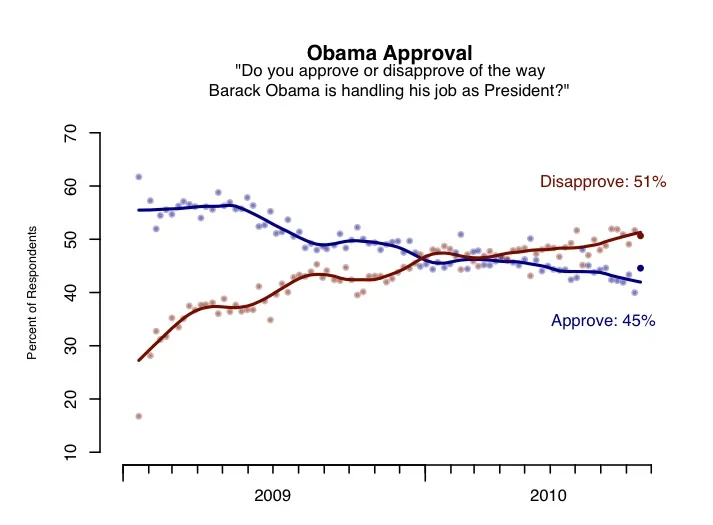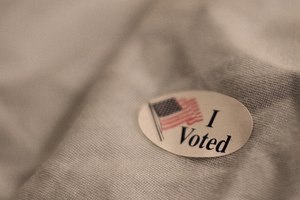Off-year elections have lower turnouts than presidential elections. If all registered voters actually cast ballots this year, the results might be extremely close. 47% of registered voters in this Economist/YouGov Poll sat they would vote or lean towards voting for the Democratic candidate for U.S. House in their district, while 47% would vote or lean towards voting for the Republican candidate.
The Economist/YouGov Poll has suggested a close race among registered voters for a while.

But once people are asked about their likelihood of voting, the results move in the Republican direction. Among “likely voters” Republicans hold a six-point lead: 50% of likely voters would vote or lean towards voting Republican, 44% would vote or lean towards voting Democratic.

Republicans are certainly happier about the opportunity to cast a ballot in this election. 46% of them describe themselves as more enthusiastic than usual about voting this year, something said by only 21% of Democrats (and 20% of those who voted for President Obama in 2008). 53% of 2008 McCain voters are more enthusiastic this year. And when it comes to the Tea Party identifiers, they are especially excited about this election: 63% of them are more enthusiastic than usual.
Compared to previous elections, are you more or less enthusiastic than usual about voting?
| All Respondents | Republicans | Democrats | Tea Party Identifiers | |
|---|---|---|---|---|
More | 30% | 46% | 21% | 63% |
About The Same | 48% | 43% | 57% | 31% |
Less | 22% | 10% | 22% | 6% |
Republicans also are leading when it comes to expectations. Twice as many Americans say the likely outcome of the fall elections is a Republican-controlled Congress as say the Democrats will retain control.
President Obama’s approval rating – usually one of the indicators of an incumbent President’s party’s performance in midterm elections – has been low for a while. This week, it has stayed above his all-time low – but just 45% approve of the way he is handling his job; 51% disapprove.









